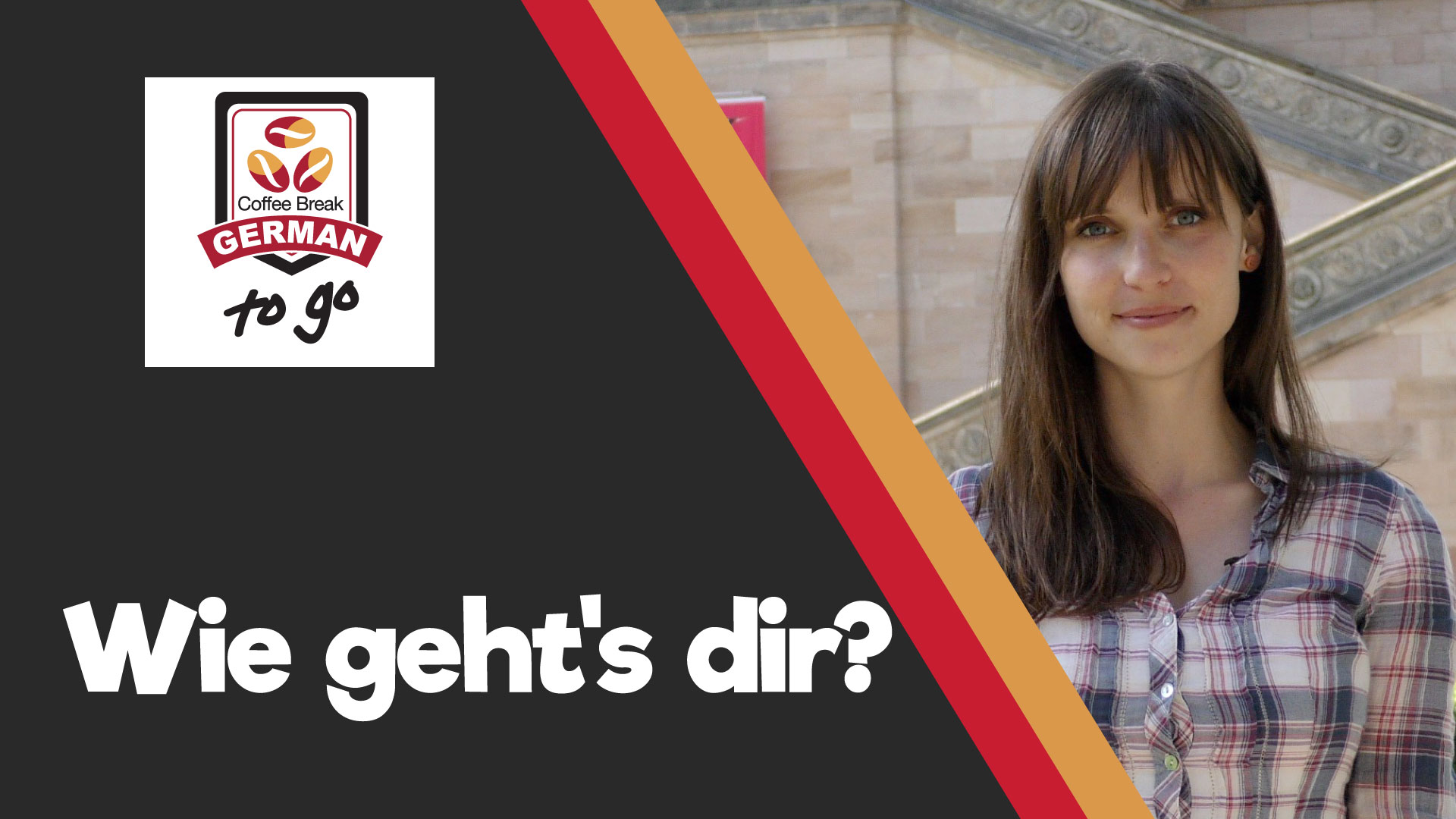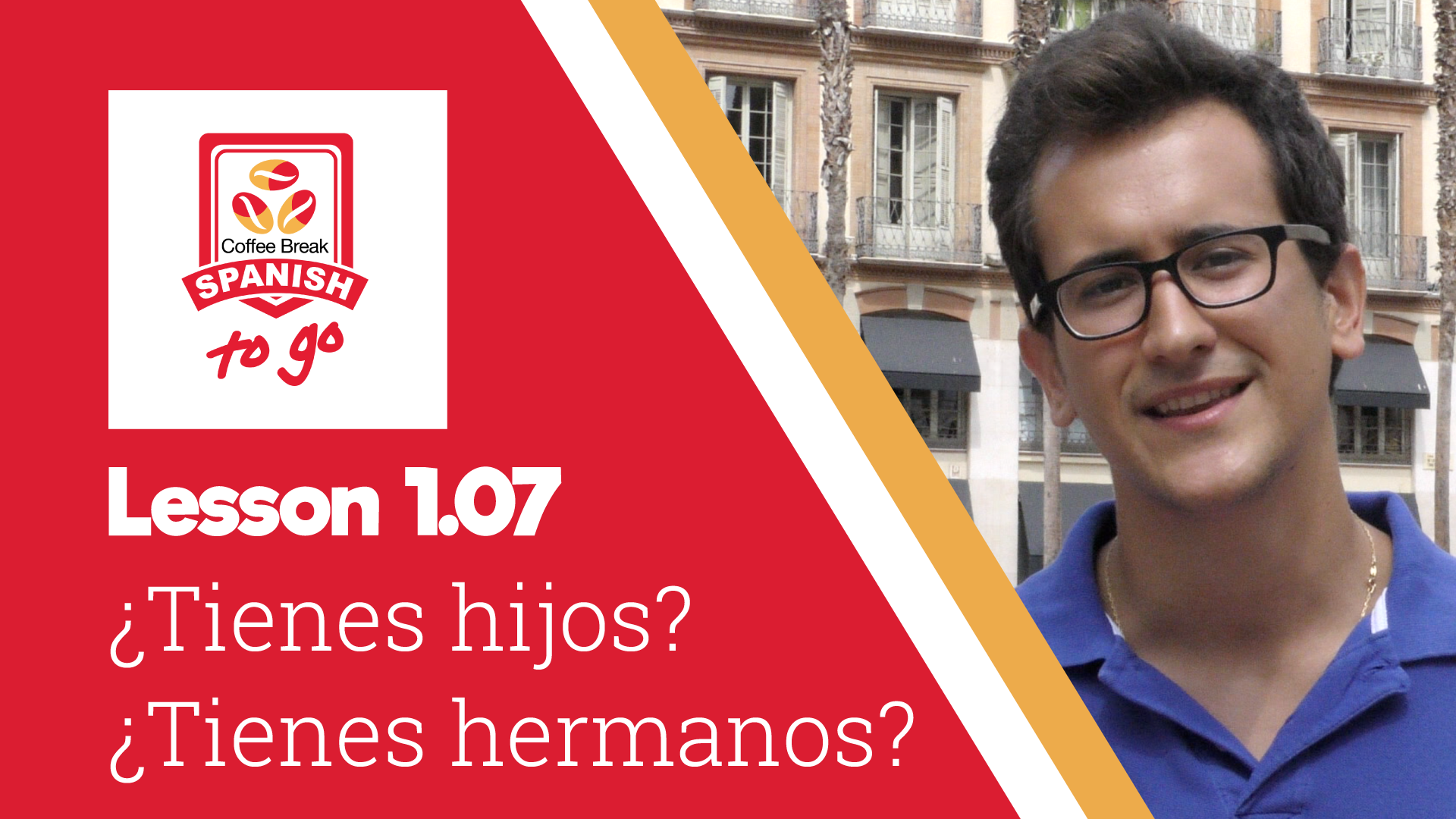It’s time for another day trip to a beautiful city in the region of Málaga and, this time, the team are in Ronda, lovingly nicknamed the ‘city of dreams’. As the home of modern bullfighting in Spain, Ronda presents the perfect opportunity for the team to ask some people about their opinions on this controversial Spanish tradition. This episode will help you continue to build your listening comprehension skills while introducing you to this dreamlike city through a series of interviews with both Ronda locals and fellow visitors.
Month: March 2019
CBC 1.40 | Huānyíng nǐ zàlái Zhōngguó!
It’s time for the final lesson in this series of Coffee Break Chinese and Mark is about to leave China. He and Hongyu have a chat about what they’ve done during the visit and reflect on how much Mark has learned. As ever, Crystal is on hand in the studio to help you understand the conversation in full.
Woher kommst du? – Talking about where you’re from in German – Coffee Break German To Go Episode 1.02
To ask “where do you come from?” in German you can say woher kommst du?, or in a more formal situation, woher kommen Sie? In this episode of Coffee Break German To Go, Julia asks this question to passers-by in the streets of Berlin. You can use the answers of our interiewees to help you learn to answer this question yourself.
In the first part of the video, watch the interviews without subtitles and try to understand. In the second part of the video, we’ve provided subtitles in German at the top of the screen. You can choose to turn on subtitles in English using the Subtitles/CC button.
In our first series, Julia is in the city of Berlin, and in each episode she’ll ask passers-by one question. Of course, that one question will result in many answers, and it’s through these answers that you can practise your German and build your vocabulary.
If you’d prefer not to wait for all 10 lessons of Season 1 to be published, you can access downloadable versions of the videos along with audio versions and lesson notes / transcripts in the Coffee Break Academy:
https://coffeebreakacademy.com/p/coffee-break-german-to-go-season1
Coffee Break German To Go is based on the popular podcast series and online course Coffee Break German. For access to the free podcasts, please click below:
https://coffeebreaklanguages.com/tag/cbg-season-1/?order=asc
Meet Daniel, Coffee Break Chinese learner
 Working for a multinational software company in Colombia, Daniel is required to speak a number of languages on a regular basis. His language learning journey started at a young age: “When I was younger I went to a bilingual school here in Colombia and afterwards my father moved to Brazil so then I learned Portuguese over there, then I noticed that I was actually good at learning languages and I enjoyed doing so. Thats when I got started with learning languages.” He now speaks an impressive 8 languages (Portuguese, French, Italian, German, Chinese, Japanese, Spanish and English).
Working for a multinational software company in Colombia, Daniel is required to speak a number of languages on a regular basis. His language learning journey started at a young age: “When I was younger I went to a bilingual school here in Colombia and afterwards my father moved to Brazil so then I learned Portuguese over there, then I noticed that I was actually good at learning languages and I enjoyed doing so. Thats when I got started with learning languages.” He now speaks an impressive 8 languages (Portuguese, French, Italian, German, Chinese, Japanese, Spanish and English).
While he constantly strives to improve all of the languages he speaks, he is currently focusing on Chinese using Coffee Break. Daniel has also been using Coffee Break to keep on top of his other languages: “Through Coffee Break, I began with French in the beginning. Although I had some notions of French, I improved them (I hope) through the podcasts.Then I went to the Italian podcasts and German as well, and now the Chinese podcasts.”
The traditional ‘textbook’ style of learning does not appeal to Daniel due to his busy lifestyle. He particularly enjoys the fact that he can listen to Coffee Break as and when it suits him: “I love it because I don’t have much time to read and do exercise and so on, so the podcasts are great for that and (they) help a lot for improving listening skills. It’s easy for me to fit into my routine while I’m walking or exercising. I get to listen to the podcasts and learn new things, that’s good. As I have used the podcasts to learn several languages now, I’m quite familiar with the structured method so to speak. I feel comfortable with it.”
Daniel tends to listen to the audio first, without any other materials, and then listens again with the notes and the video lessons when he has time. He stresses the importance of using the lesson notes alongside the audio, particularly when learning Chinese: “Especially with Chinese I think the written part is very important to grasp the language itself. With the others (languages), I think you can manage just through listening and maybe speaking. In previous podcasts, especially with French I remember there were hints given as to how things were written out. With Chinese it’s a lot harder so I do use the premium material. I think that the podcast itself, on it’s own, it’s a challenge.”
Daniel has a particular method which he used to learn all of the languages he speaks: “All of the languages that I speak or that I know, I learned just through using them. They might not be perfect, but as I said I don’t really enjoy or have time to use textbooks. And I think it’s better that way, just getting used to the language and speaking and just throwing yourself our there.”
Fortunately, Daniel’s job has enabled him to learn languages this way as he has regular contact with a variety of different nationalities: “I try to compliment the podcast learning through speaking to native people in my company – it’s multinational so I do have several colleagues in several countries that speak the languages that I speak so I get to practise with them.”
The aspect of language learning that Daniel finds the most challenging is writing and speaking: “With languages like Chinese, you have nothing to relate it to so I think that the written part is very important. Also, you don’t necessarily exercise your speaking skills. You might listen very well and understand everything that’s being said at one time and eventually you can read as well, but the speaking part is a challenge. In Chinese with the tones and so on, it’s tough. What’s easy for me is once I identify the patterns in the language I think I find it easier to build up from there.”
Alongside Coffee Break, Daniel has tried various language learning apps and websites in an attempt to connect with other language learners. He believes that these resources compliment the Coffee Break lessons. He stated: “I wouldn’t replace it (Coffee Break) because they serve different purposes but I think it’s a good compliment.”
It also became apparent that learning all of these languages has opened many doors for Daniel. He explains that in his previous job he had the opportunity to manage a project in Brazil purely due to his knowledge of Portuguese. Now, in his current position, he communicates with people all over the world. He explains: “being able to communicate with all of them and speak these languages was what got me the job.”
It is clear that Daniel has had a passion for languages from a very young age. Despite the fact that he speaks an impressive number of languages, he admits that no matter how advanced you are, you never stop learning.
CBS EM 1.04 | De Compras en el Mercado de Atarazanas
Where better to soak up the sights, sounds, smells and tastes of a culture than in el mercado, and in this episode you can join the Coffee Break team in the Mercado Atarazanas in central Málaga. Whether it’s fresh Mediterranean seafood, jamón ibérico, or goat’s cheese from the hills around the city, you can find everything you need for the perfect Malagueño meal. This episode will help you build your vocabulary and listening skills while discovering more about the culture of this part of Spain.
For the full online course which includes transcripts, bonus audio materials, exercises, vocabulary lists and exclusive video content, please click here.
Meet Carol, Coffee Break Spanish learner
 Tell us who you are, where you live, your nationality and how long you’ve been learning a language with us.
Tell us who you are, where you live, your nationality and how long you’ve been learning a language with us.
Which language or languages are you learning with Coffee Break?
Spanish
What experience have you had speaking and learning other languages?
What are your favourite memories of learning a language?
Where would your ideal coffee break be, and with whom?
What’s the best language-learning tip you have found works for you?
Quick Fire Round
- Your favourite language: Spanish
- Your favourite word or phrase in the language: Tinao – roofed area for relaxing outside
- Do you have a favourite film, TV show, book or singer in the language? Hija de la Fortuna by Isabel Allende
- Your favourite destination to practise your language: Las Alpujarras
CBC 1.39 | Nǐ xiǎng qù wǒ biǎomèi de shēngrì jùhuì ma?
In this penultimate episode of Season 1 of Coffee Break Chinese, Mark meets some members of Hongyu’s family at his younger cousin’s birthday party. This gives him a great opportunity to put his Mandarin to the test and learn some new vocabulary too. As usual, Crystal is on hand in the studio to help.
Wie geht’s dir? – Talking about how you’re feeling in German – Coffee Break German To Go Episode 1.01
To ask “how are you?” in German you can say wie geht’s dir?, or in a more formal situation, wie geht es Ihnen? In this episode of Coffee Break German To Go, Julia asks this question to passers-by in the streets of Berlin. You can use the answers of our interiewees to help you learn to answer this question yourself.
In the first part of the video, watch the interviews without subtitles and try to understand. In the second part of the video, we’ve provided subtitles in German at the top of the screen. You can choose to turn on subtitles in English using the Subtitles/CC button.
In our first series, Julia is in the city of Berlin, and in each episode she’ll ask passers-by one question. Of course, that one question will result in many answers, and it’s through these answers that you can practise your German and build your vocabulary.
If you’d prefer not to wait for all 10 lessons of Season 1 to be published, you can access downloadable versions of the videos along with audio versions and lesson notes / transcripts in the Coffee Break Academy:
https://coffeebreakacademy.com/p/coffee-break-german-to-go-season1
Coffee Break German To Go is based on the popular podcast series and online course Coffee Break German. For access to the free podcasts, please click below:
https://coffeebreaklanguages.com/tag/cbg-season-1/?order=asc
Meet Amanda, Coffee Break Italian learner
 Originally from Australia, Amanda now lives in New York where she moved to work as a lawyer. However, she is now focusing on pursuing a career as a writer. Having Lebanese parents, Amanda can speak Arabic and has also studied Japanese. Amanda started learning Italian for a partner. However, even after the end of that relationship, she continued studying, having fallen in love with the language, culture and her friends at Coffee Break Italian. She is now “enjoying learning a language that you don’t have to learn a whole new alphabet for!”
Originally from Australia, Amanda now lives in New York where she moved to work as a lawyer. However, she is now focusing on pursuing a career as a writer. Having Lebanese parents, Amanda can speak Arabic and has also studied Japanese. Amanda started learning Italian for a partner. However, even after the end of that relationship, she continued studying, having fallen in love with the language, culture and her friends at Coffee Break Italian. She is now “enjoying learning a language that you don’t have to learn a whole new alphabet for!”
After only 2 months of studying the language, her progress was put to the test on a trip to Italy. Although she was nervous at first, she managed to understand and follow conversations which boosted her confidence.
Amanda starts by telling us how she discovered Coffee Break Italian: “I was looking up ways to learn Italian then I came across the free podcasts and I started listening to them. I then went to the website and realised that I could purchase the package and get the notes which I found very helpful. There was this news article which had a list of podcasts which are useful for learning a language…which is where I came across it.”
What Amanda enjoys the most about the lessons is the interaction between the hosts: “I really like the people that are a part of CB Italian, I feel like they’re my friends. I just feel like it’s very easy, even though there is no one there to judge me I feel like they’re patient. It’s not boring, it’s interesting, they seem like they’re having fun. I like the balance between Mark, whose Italian is great but they’ve also got a native speaker for pronunciation which I really appreciate.”
Amanda enjoys learning alongside another learner (featured on the podcast): “It’s good as I can relate to the learner, It’s actually quite comforting when you’re learning a new language to know that you’re not the only one who can’t pronounce something….if she makes a mistake they leave it in there and correct her but they do it nicely so I then also know that ‘ok it’s not so bad if I make a mistake’. It sounds like they’re having so much fun which is really nice, it’s not boring. And it’s nice to have someone who is a native English speaker but who can speak Italian really well because it almost shows you what you can do but it’s also great having that native Italian speaker for pronunciation and just hearing it, it’s a great way to learn. I think it’s a really great set up.”
Amanda continues: “I like the listening but I also appreciate that you can get the notes. I like hearing it and then seeing how (the words are) spelt. Being a native English speaker, I’m not learning a whole new alphabet but then it just helps me when I read it to make sure that I’m pronouncing the sounds that in English would be different. I really appreciate that. Having the notes is helpful if you want to look back on something but I learn more by hearing something and especially with language, I think that’s really important. So I really like that way of learning and because it is such a fun and casual setting, it makes me want to listen to it more than when it’s a bit more sort of in a lecture; it feels more like a chore that way.”
Amanda particularly enjoys the fact that the podcasts fit in around her busy lifestyle: “I can just listen to it on my way to work. In New York everyone is in a rush so I can just start talking to myself in Italian and no one really pays much notice. I can listen to it while I’m walking to work or on my lunch break and repeat it out loud. It’s a great way to be efficient with the time that I have….and then I go back home and look over my notes. It’s a helpful way to reinforce what I’ve just heard to look at them half an hour later.”
Listening to the CB podcasts means the Amanda can learn at her own pace, making her feel more in control of her learning: “I like that I can do this in my own time. It’s great because you’ve got all the online stuff, you can write comments, there’s a community to support you. I like the videos. I’ve also got the YouTube videos with CBI , it’s nice as you can put a face to the name. It just always seems like they’re having a great time. I’ve actually recommended it to a few friends who are learning other languages.”
Coming to terms with differences in the way in which things are said in another language is often difficult to get your head around. However, as Amanda points out, once you are aware of these differences and accept them, it become easier. “The biggest challenge I face is the order of the words because in English you might say: ‘Can you turn the light off?’, and in another language it might be: ‘Light off can you please?’, something like that. That for me is one of the more difficult things because I just want to be able to ask my questions or just speak, but I have to remember the different order. With Italian, it is always remembering that you have to put ‘the’ in front of everything which I think is very unusual but you’ve got to get past what you think is strange or what is unnatural and just let that go.”
As we mentioned earlier, Amanda speaks Japanese and Arabic, both of which are quite different to Italian. Amanda tells us about the key differences. “The thing with those other languages is that you’re learning a whole new script and very different sounds. Even though (Italian) is different to English, it’s still based on Latin so it’s not a difficult language to listen to or be able to pronounce. Arabic is a very difficult language to speak because you make one sound that you think is right and it could be something completely different, so that’s the good thing I think with Italian. The other thing is, because it’s Latin based, I think I underestimated how much easier it would be. It’s easier than those other languages but it’s still not easy, it takes a lot of effort.”
Amanda tells us the story behind one of her favourite Italian words: “It’s funny because there is a TV show called ‘Master of None’ here in the US and the main character is a well known comedian and he spends the first few episodes of the second series in Italy. He comes across the word allora (which just means ‘ok, so’). The way that the actor was saying it was in a very exaggerated way! So, when my friends found out I was learning Italian, they would keep saying this word to me every time I spoke to them. They’re like: ‘Allora, how are you?’, ‘Allora, how’s your Italian going?’ It’s this joke now that has unfortunately surpassed many pretty words, but I laugh every time. It’s a pretty language so I’m definitely happy to be learning it.”
Amanda ends our chat with a message for the Coffee Break team: “I really appreciate the way you guys do it, the way you guys have come up with it. Once I had started learning with CBI I realised that they had won an award for the podcast which they so deserve as it’s so well done! Another thing I like which they do are the scenarios in-between. They teach you words then they speak between themselves in different scenarios, it’s at a nice pace. I think they’ve done a fantastic job with it and I’m very happy I stumbled upon it.”
¿Tienes hijos? ¿Tienes hermanos? – Talking about family in Spanish – Coffee Break Spanish To Go Episode 1.07
In this episode Marina asks the interviews about their families using the question ¿tienes hijos? (do you have children?) or ¿tienes hermanos? (do you have brothers or sisters?).
Here are the words and phrases you’ll need:
Do you have children? – ¿Tienes hijos? (informal)
Do you have children? – ¿Tiene usted hijos? (formal)
Do you have brothers or sisters? – ¿Tienes hermanos? (informal)
Do you have brothers or sisters? – ¿Tiene usted hermanos? (formal)
I have a son – tengo un hijo
I have two daughters – tengo dos hijas
I have three brothers – tengo tres hermanos
I have four sisters – tengo cuatro hermanas
In the first part of the video, watch the interviews without subtitles and try to understand. In the second part of the video, we’ve provided subtitles in Spanish at the top of the screen. You can choose to turn on subtitles in English using the Subtitles/CC button.
In this first series of Coffee Break Spanish To Go, Marina is in the city of Málaga, in the south of Spain, and in each episode she’ll ask passers-by one question. Of course, that one question will result in many answers, and it’s through these answers that you can practise your Spanish and build your vocabulary.
Coffee Break Spanish To Go will be published every two weeks here on YouTube, and each Season will be filmed in a different part of the Spanish-speaking world.
If you’d prefer not to wait for all 10 lessons of Season 1 to be published, you can access downloadable versions of the videos along with audio versions and lesson notes / transcripts in the Coffee Break Academy.
Coffee Break Spanish To Go is based on the popular podcast series and online course Coffee Break Spanish. For access to the free podcasts, please click here.
CBS EM 1.03 | Nos vamos a Córdoba
In this episode, join Mark and the Coffee Break team as they take the train to Córdoba for the day. You’ll hear them asking about what there is to see and do in Córdoba, before heading on a trip into the city’s famous Mezquita-Catedral. The team will also sample some of Spain’s best tortilla, and we’ll hear from other tourists who are spending the day in the city.
For the full online course which includes transcripts, bonus audio materials, exercises, vocabulary lists and exclusive video content, please click here.

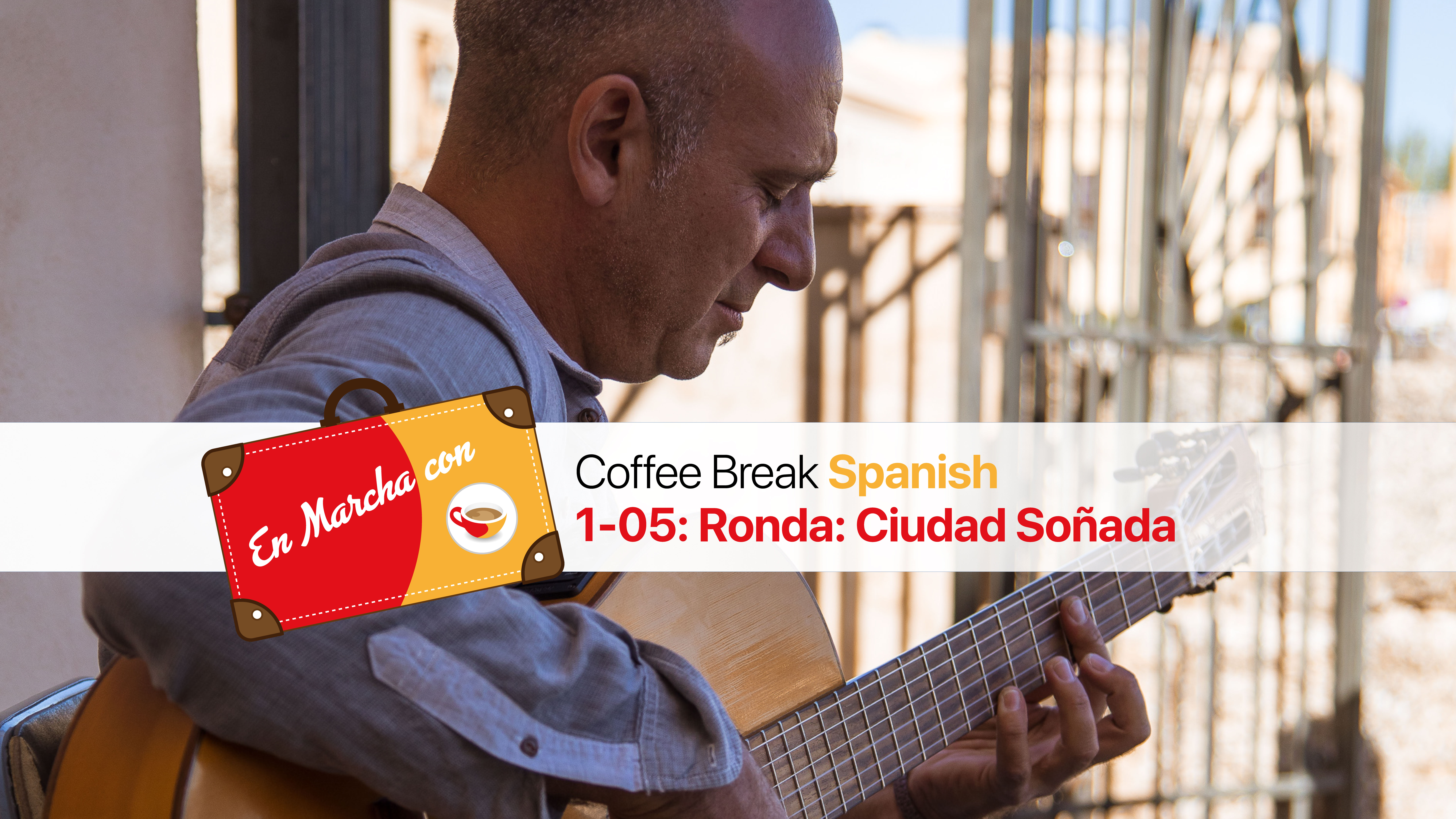

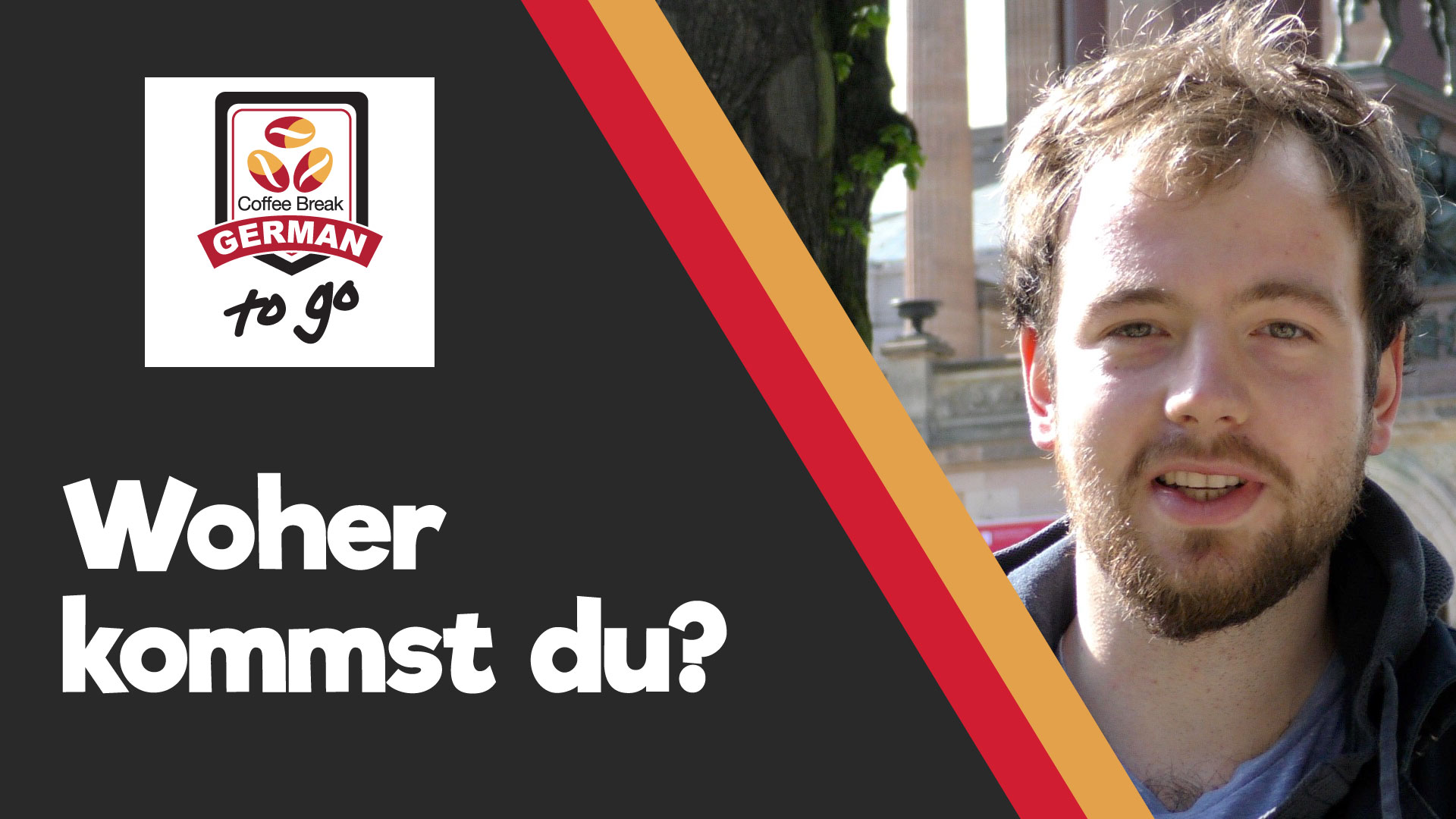

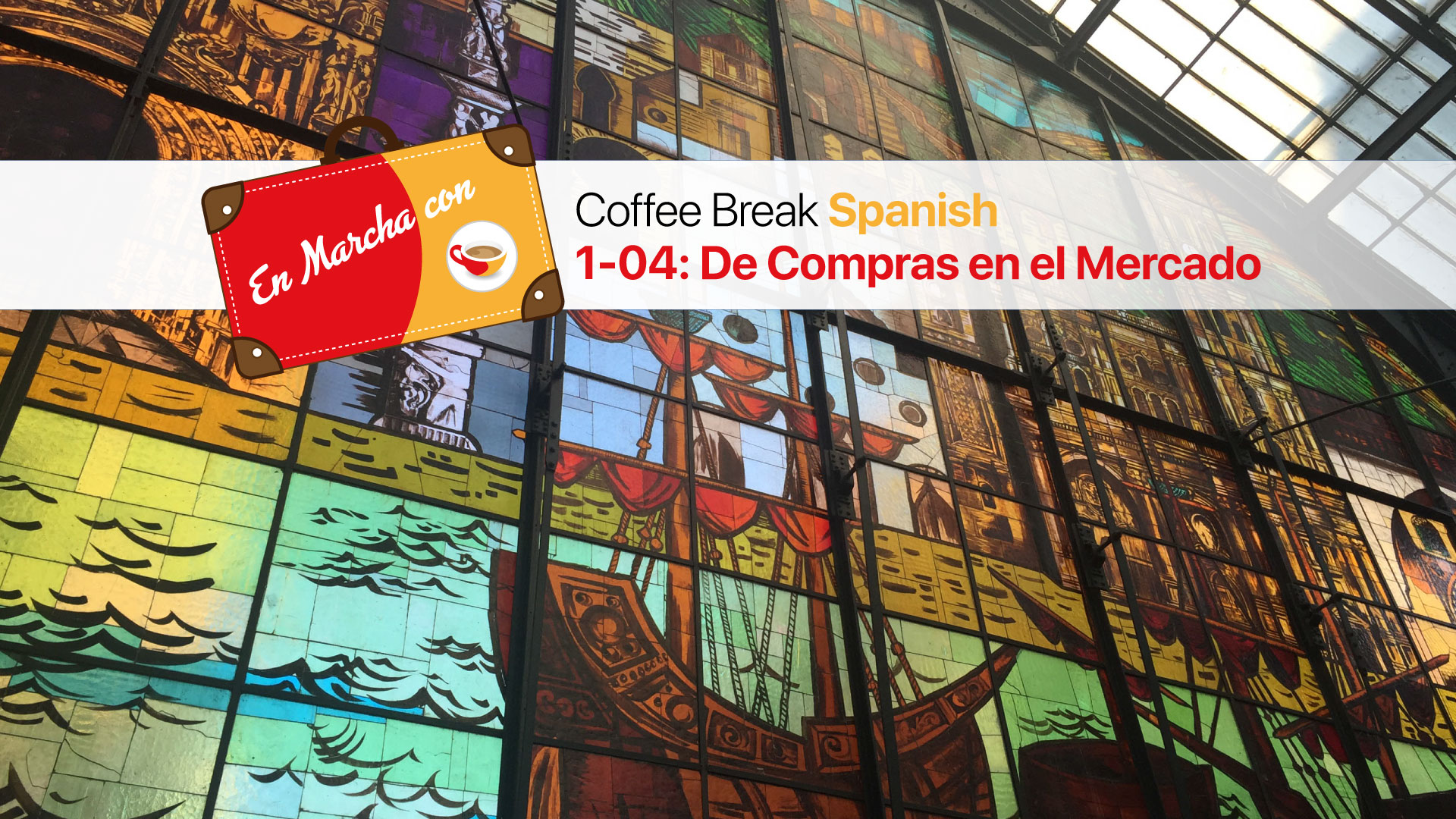

 Tell us who you are, where you live, your nationality and how long you’ve been learning a language with us.
Tell us who you are, where you live, your nationality and how long you’ve been learning a language with us. 
